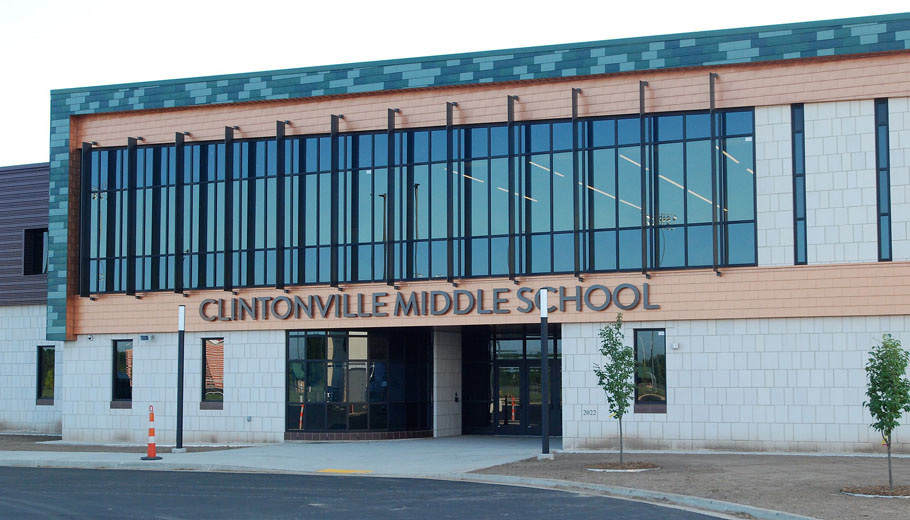
District prepares for future
By Bert Lehman
PMA Securities presented five-year budget projections to the Clintonville School Board.
Erik Kass, director of public finance for PMA Securities, told the board at its Jan. 22 meeting to plan for expected deficits.
He explained the different components that go into figuring out the district’s local property tax levy. kass said the district’s revenue-limit calculation minus the state aid the district receives, equals the local property tax levy.
Even though the district’s enrollment has decreased by about 300 students since the 2009-10 school year, Kass said the district has a “decent” influx of students from eighth grade to ninth grade. He attributed that to private schools in Clintonville that have students from kindergarten to eighth grade.
For the budget projection model, Kass said Superintendent Troy Kuhn contacted the private schools to get their student count projections for seventh and eighth grade.
“It’s really holding true, your eighth grade class jumps by about 20 pupils on average per year,” Kass said.
Assumptions
In addition to enrollment increases, Kass said several other assumptions had to be made when creating the five-year budget model projections.
The projections assumed a 4% salary increase for all district employees in the 2024-25 budget, and a 3% increase in the following years.
Kuhn clarified to the board that the percentage of wage increases each year were just assumptions for the budget modeling exercise and nothing has been approved regarding wage increases.
A 10% increase in health insurance costs, 5% for dental insurance, 5% for transportation costs, and 4% for utilities were also used for the budget model projections.
If the district were to use funds from its fund balance to cover the projected $1 million deficit in the 2023-24 budget, its fund balance percentage would drop from 17% to 11%, Kass said.
“You’re really on a trend of over expending with this base model by $200,000 and $250,000 per year based upon the assumptions,” Kass said.
Under different scenarios Kass presented, the district faced budget deficits if future years.
To work towards eliminating those deficits, Kass told the board the district needs to identify revenue enhancements to maximize the available revenue.
He added that he is working with the district’s administration to make sure the district is maximizing its opportunities for revenue, including how the district invests its funds.
Opportunities to decrease expenditures also need to be researched, Kass said, adding that this could include projects, staffing or redesigning benefits.
Referendum option
An operational referendum could be another option. Kass said 80% of school districts in Wisconsin have researched having an operational referendum to bring revenue to their district.
“It is an opportunity allowed to ask the community for revenue authority through operational referendum,” Kass said. “It’s not a solution we’re recommending, just wanted you, as a board, to understand the most common areas you can look at.”
Board member Mark Zachow asked how the revaluation of properties in the city of Clintonville by the city will impact the school district’s projected budget model, and if it will benefit the district.
“It certainly is a benefit from your tax base standpoint and the way you’ve approached your mill rate,” Kass said. “But, it’s certainly going to be very difficult to explain to people because they’re not going to understand it.”
Kass said one reason the district is facing budget deficits is because it is “so heavily tied up in staff.”
